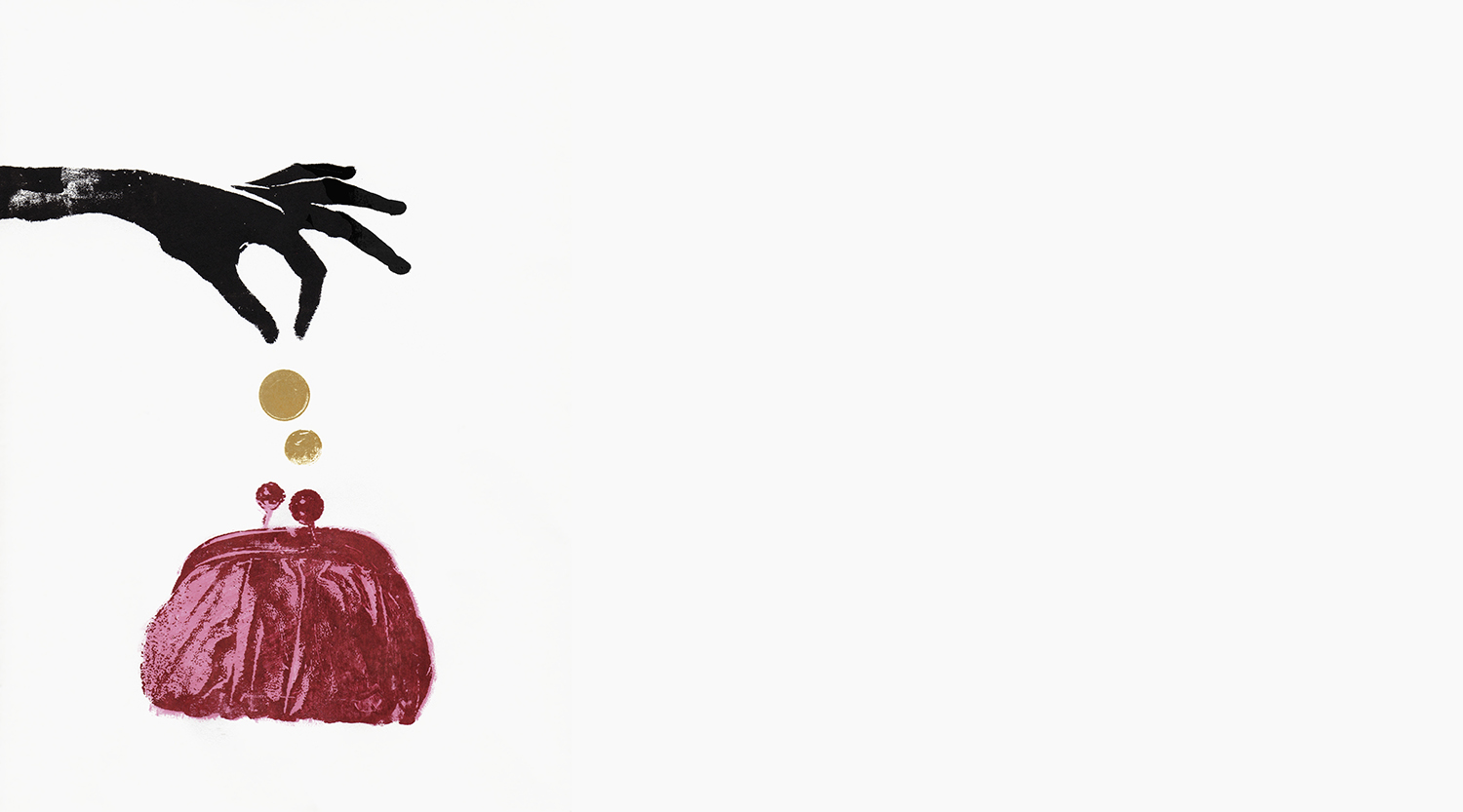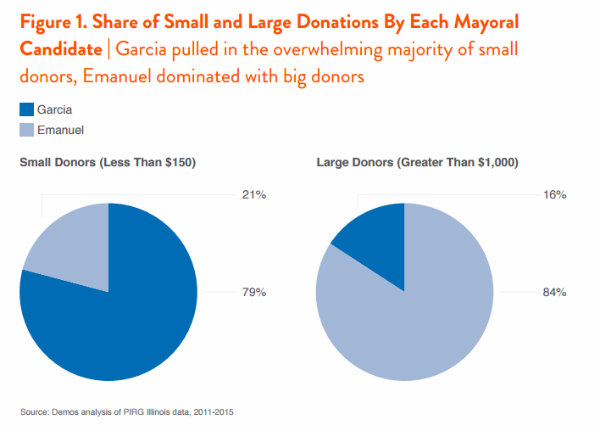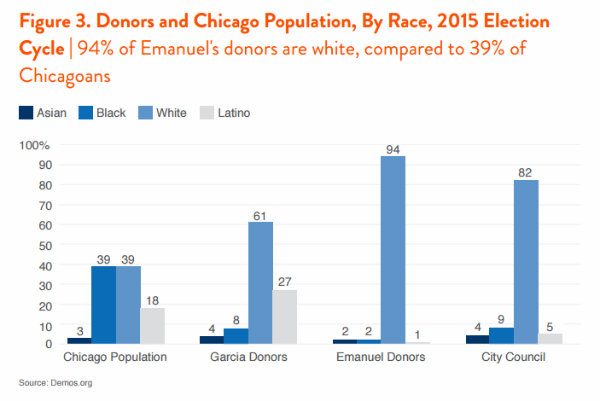How a tiny sliver of the population pays for local elections
Where does Rahm Emanuel get his political contributions? Rich white people, of course.


A free daily email with the biggest news stories of the day – and the best features from TheWeek.com
You are now subscribed
Your newsletter sign-up was successful
America is rich and has fewer restrictions on political spending by the day. So our political campaigns are expensive. But we also have tremendous income and wealth inequality — greater than any of our industrialized peer nations.
Put those two together, and it necessarily implies that rich people will have a lot of influence over the political system. It's been a constant theme of Bernie Sanders' presidential campaign (and Donald Trump's too, to a lesser extent). Lots of studies have been done about the influence of the wealthy on the federal level — but comparatively few on smaller political units.
However, that is about to change, with the release today of a report on the demographics of donors in the 2015 Chicago mayoralty race, from the think tank Demos. They find that in a city that is 39 percent white, a small minority of wealthy white people comprise the overwhelming majority of winner Rahm Emanuel's donors — which goes some way toward explaining why Emanuel has advanced the policies he has.
The Week
Escape your echo chamber. Get the facts behind the news, plus analysis from multiple perspectives.

Sign up for The Week's Free Newsletters
From our morning news briefing to a weekly Good News Newsletter, get the best of The Week delivered directly to your inbox.
From our morning news briefing to a weekly Good News Newsletter, get the best of The Week delivered directly to your inbox.
Demos policy analyst Sean McElwee produced the report, with assistance from University of Massachusetts-Amherst political science professors Brian Schaffner and Jesse Rhodes. The whole paper is worth reading, but most of the story is told in these two charts. Here is the percentage of large donors (contributing over $1,000) who gave to Emanuel versus his opponent "Chuy" Garcia, compared to the same chart for small donors (less than $150):

Now here are the general racial demographics of each candidate's supporters:

In a nutshell: Rahm Emanuel relied overwhelming on large donations from a very nearly exclusively white pool of donors — who also, as further analysis shows, largely live in the same few rich wards of the city (save for non-Chicagoans, as Emanuel also did a lot of fundraising outside the city). Even Garcia's donors were disproportionately white, though to a much lesser extent. "We expected going in there would be some demographic disparities," McElwee told The Week. "But Chicago might be unique in how bad it is."
Now, it's important not to exaggerate the power of money in politics, since much of its power comes from people assuming it's the beginning and end of political power. In the 2015 election, Emanuel had the good fortune of an inexperienced opponent. And the discovery that he had suppressed the horrifying dashcam video of Laquan McDonald being brutally shot to death by police would have certainly destroyed Emanuel's campaign, had it happened before the election. One cannot simply purchase an election outright.
A free daily email with the biggest news stories of the day – and the best features from TheWeek.com
However, money still matters a lot, and it probably matters more on the local and state level than it does nationally. As McElwee notes, the donor class has sharply different ideological beliefs than the public at large. For obvious reasons, they tend to resist the tax increases necessary to pay for better services, and tend to support "centrist" austerity derp like the Bowles-Simpson program. In other words, they're more conservative.
When a politician spends much of his waking life circulating among such people, listening carefully to their grievances and their ideas, and trying to convince them he's worth a large donation, it's only human nature that he will tend to sympathize with some of their views. From the other side, making such a process a hurdle one must clear will tend to select for candidates who are comfortable with flattering the wealthy or simply share their views.
So elections cannot be bought like ground beef, and one cannot simply disregard the expressed will of the voters. But when it comes to complicated budget arguments, tax giveaways for the rich, and sundry other subjects that can fly under the radar, the influence of the rich is powerful indeed. This is why Emanuel has spent so much of his time as mayor privatizing public services and in bitter fights with the Chicago teachers' union over education cuts.
As McElwee argues, one very obvious solution to this would be a system of public finance for elections, so candidates can run for office without needing to spend half the campaign on bended knee before the local rich. But at any rate, this report is just the first in a series that will carry out similar analyses on D.C., Miami-Dade County, each individual state, and eventually the nation as a whole. Undoubtedly each will have their own demographic wrinkles, but rest assured: The voices of America's rich are being heard everywhere.
Ryan Cooper is a national correspondent at TheWeek.com. His work has appeared in the Washington Monthly, The New Republic, and the Washington Post.
-
 Minnesota's legal system buckles under Trump's ICE surge
Minnesota's legal system buckles under Trump's ICE surgeIN THE SPOTLIGHT Mass arrests and chaotic administration have pushed Twin Cities courts to the brink as lawyers and judges alike struggle to keep pace with ICE’s activity
-
 Big-time money squabbles: the conflict over California’s proposed billionaire tax
Big-time money squabbles: the conflict over California’s proposed billionaire taxTalking Points Californians worth more than $1.1 billion would pay a one-time 5% tax
-
 ‘The West needs people’
‘The West needs people’Instant Opinion Opinion, comment and editorials of the day
-
 The billionaires’ wealth tax: a catastrophe for California?
The billionaires’ wealth tax: a catastrophe for California?Talking Point Peter Thiel and Larry Page preparing to change state residency
-
 Bari Weiss’ ‘60 Minutes’ scandal is about more than one report
Bari Weiss’ ‘60 Minutes’ scandal is about more than one reportIN THE SPOTLIGHT By blocking an approved segment on a controversial prison holding US deportees in El Salvador, the editor-in-chief of CBS News has become the main story
-
 Has Zohran Mamdani shown the Democrats how to win again?
Has Zohran Mamdani shown the Democrats how to win again?Today’s Big Question New York City mayoral election touted as victory for left-wing populists but moderate centrist wins elsewhere present more complex path for Democratic Party
-
 Millions turn out for anti-Trump ‘No Kings’ rallies
Millions turn out for anti-Trump ‘No Kings’ ralliesSpeed Read An estimated 7 million people participated, 2 million more than at the first ‘No Kings’ protest in June
-
 Ghislaine Maxwell: angling for a Trump pardon
Ghislaine Maxwell: angling for a Trump pardonTalking Point Convicted sex trafficker's testimony could shed new light on president's links to Jeffrey Epstein
-
 The last words and final moments of 40 presidents
The last words and final moments of 40 presidentsThe Explainer Some are eloquent quotes worthy of the holders of the highest office in the nation, and others... aren't
-
 The JFK files: the truth at last?
The JFK files: the truth at last?In The Spotlight More than 64,000 previously classified documents relating the 1963 assassination of John F. Kennedy have been released by the Trump administration
-
 'Seriously, not literally': how should the world take Donald Trump?
'Seriously, not literally': how should the world take Donald Trump?Today's big question White House rhetoric and reality look likely to become increasingly blurred
